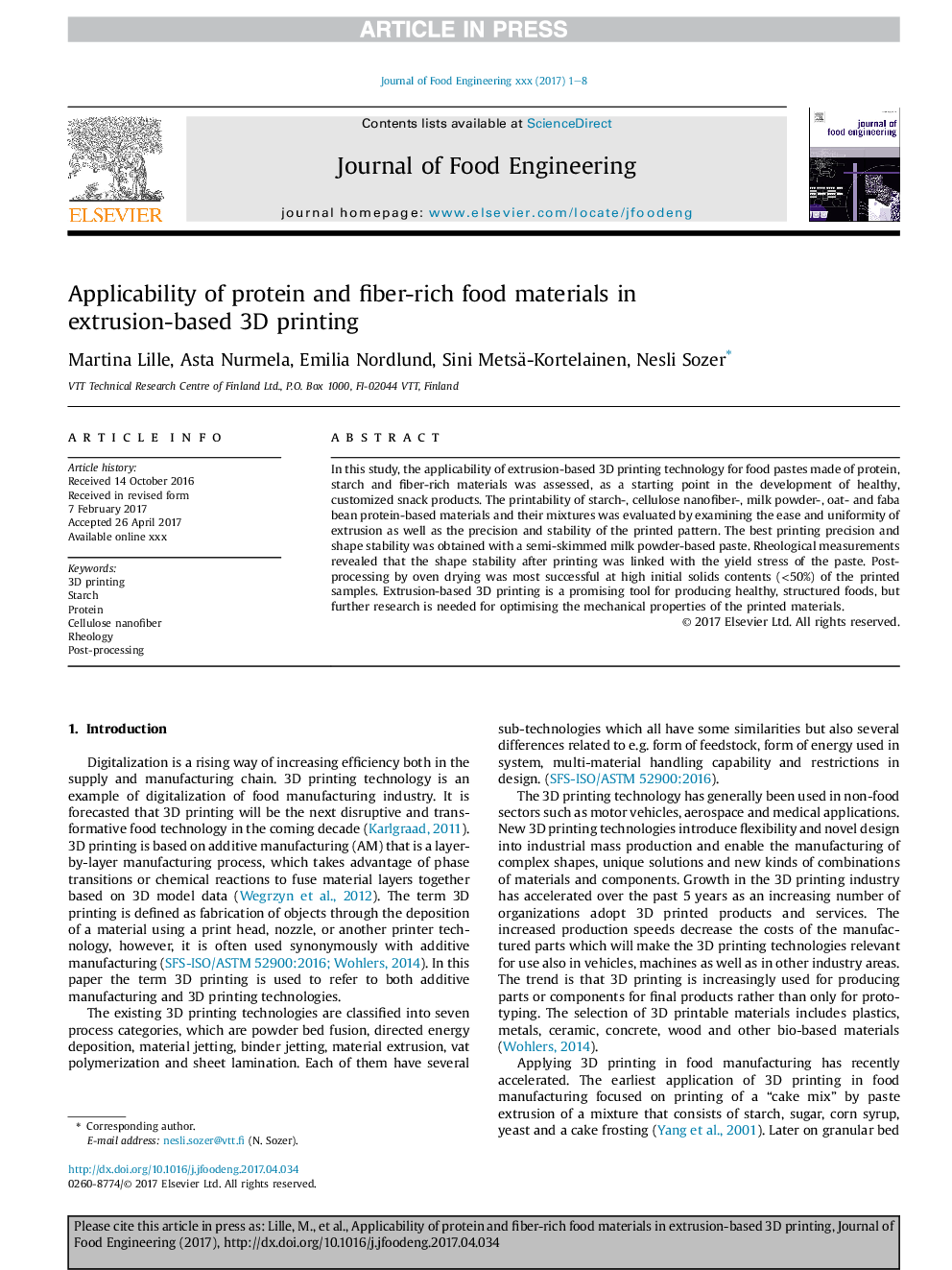| Article ID | Journal | Published Year | Pages | File Type |
|---|---|---|---|---|
| 6664827 | Journal of Food Engineering | 2018 | 8 Pages |
Abstract
In this study, the applicability of extrusion-based 3D printing technology for food pastes made of protein, starch and fiber-rich materials was assessed, as a starting point in the development of healthy, customized snack products. The printability of starch-, cellulose nanofiber-, milk powder-, oat- and faba bean protein-based materials and their mixtures was evaluated by examining the ease and uniformity of extrusion as well as the precision and stability of the printed pattern. The best printing precision and shape stability was obtained with a semi-skimmed milk powder-based paste. Rheological measurements revealed that the shape stability after printing was linked with the yield stress of the paste. Post-processing by oven drying was most successful at high initial solids contents (<50%) of the printed samples. Extrusion-based 3D printing is a promising tool for producing healthy, structured foods, but further research is needed for optimising the mechanical properties of the printed materials.
Related Topics
Physical Sciences and Engineering
Chemical Engineering
Chemical Engineering (General)
Authors
Martina Lille, Asta Nurmela, Emilia Nordlund, Sini Metsä-Kortelainen, Nesli Sozer,
